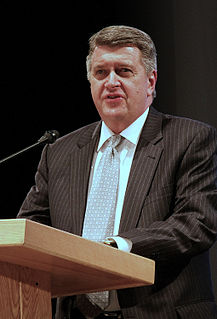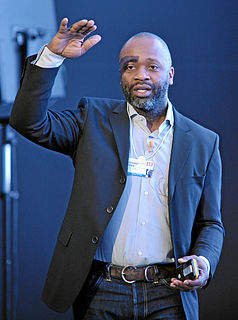A Quote by Meister Eckhart
People should not worry as much about what they do but rather about what they are. If they and their ways are good, then their deeds are radiant... it is not our works which sanctify us but we who sanctify our works.
Related Quotes
People should not worry as much about what they do but rather about what they are. If they and their ways are good, then their deeds are radiant. If you are righteous, then what you do will also be righteous. We should not think that holiness is based on what we do but rather on what we are, for it is not our works which sanctify us but we who sanctify our works.
O, this faith is a living, busy, active, powerful thing! It is impossible that it should not be ceaselessly doing that which is good. It does not even ask whether good works should be done; but before the question can be asked, it has done them, and it is constantly engaged in doing them. But he who does not do such works, is a man without faith. He gropes and casts about him to find faith and good works, not knowing what either of them is, and yet prattles and idly multiplies words about faith and good works.
A good end cannot sanctify evil means; nor must we ever do evil, that good may come of it... It is as great presumption to send our passions upon God's errands, as to palliate them with God's name... We are too ready to retailiate, rather than forgive, or gain by love and information. And yet we could hurt no man that we believe loves us. Let us try then what Love will do: for if men did once see we love them, we should soon find they would not harm us. Force may subdue, but Love gains: and he that forgives first, wins the laurel.
There's no question that in my lifetime, the contrast between what I called private affluence and public squalor has become very much greater. What do we worry about? We worry about our schools. We worry about our public recreational facilities. We worry about our law enforcement and our public housing. All of the things that bear upon our standard of living are in the public sector.
If therefore our houses be houses of the Lord, we shall for that reason love home, reckoning our daily devotion the sweetest of our daily delights, and our family worship the most valuable of our family comforts. This will sanctify to us all the conveniences of our houses, and reconcile us to the inconveniences of it.
A good end cannot sanctify evil means; nor must we ever do evil that good may come of it. We are too ready to retaliate, rather than forgive, or gain by love and information. And yet we could hurt no man that we believe loves us. Let us, then, try what love will do: for if men do once see that we love them, we should soon find they would not harm us. Force may subdue, but love gains; and he that forgives first, wins the laurel.
We must remember that much spiritual growth does not occur suddenly but rather through time and experience. The encouraging message of the gospel is that God does not often require us to perform sensational or extraordinary deeds but rather to try to do better today than we did yesterday. He is mindful of our desires, our determination, and our direction as well as of our deeds.





































